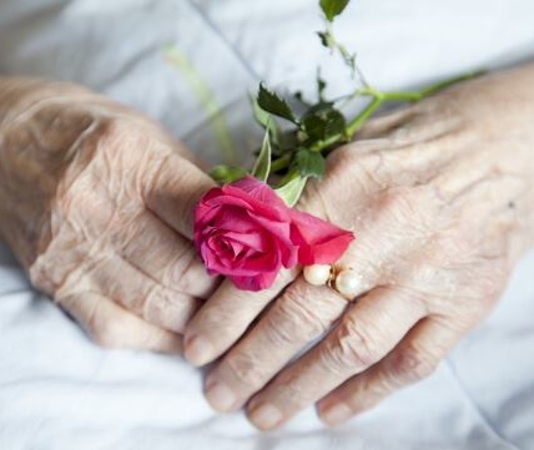During a visit to her grandma’s house at Christmas not quite two years ago, Cristina Deptula noticed a trail of ants roaming through the kitchen.
“There was trash that needed to be taken out and dirty laundry,” she recalled, noting that her 87-year-old grandmother suffers from scoliosis. “My mom and I offered to do the dishes and my grandma refused! She insisted that she didn't need or want our help, that we didn't have to do that, and she'd just get to it the next morning.”
In reality, it took her grandma several days to load the dishes into the dishwasher. Deptula lived close enough to help her grandmother with regular grocery shopping, but when it came to housework, the response always a polite, “No thanks,” or “I’ll get to it later.”
“One thing to realize with older relatives is that they won't necessarily ask for your help or even accept offers of it,” Deptula said. “You might need to visit them more than once, check in with them, say over New Year's, to see if they actually did get to those dishes or piles of clothes.”
Deptula’s grandma became a widow less than five years earlier and she was determined to live independently.
“She couldn't understand why we wanted to do things for her,” Deptula said. “My mom and I eventually staged a semi-intervention where we showed up and said that no matter what we were cleaning her fridge and counters and kitchen. I stayed and made small talk to distract her while my mom cleaned, then I came in and helped once Grandma nodded off to sleep.”
Some of the signs Deptula recommends people do three things when visiting elderly relatives over the holidays (or anytime) to determine if they need senior care:
- Smell. Has the trash been taken out? Is there old food in the fridge? Is dirty laundry piling up?
- See. Is this someone who used to love cooking and decorating and now he or she just sits in a chair? Is housework getting done?
- Listen. Is this formerly easy-going person now a grouchy complainer? Has a formerly talkative person become silent? Does this person seem paranoid?
- Based on her personal experience, Deptula realized these were warning signs her grandmother needed more senior home care and was possibly developing dementia. For example, because she was unable to bend over and pick up her newspaper, she developed an elaborate system of driving up to it and dragging it up to her house with her cane.
Once you become aware of these issues, what is next? The family eventually decided to put her grandmother in a nursing home, but that may not be the solution for every family. Elder home care services are also an option. Author and psychotherapist Christina Steinorth (www.christinasteinorth.com) also created tips on how to communicate with a loved one who needs more help as they age.
“In my book, I have a specific chapter dedicated to adult children/aging parent relationships,” Steinorth said of her “Cue Cards for Life: Thoughtful Tips for Better Relationships.”
“Here is my best advice on how to handle these types of situations tactfully,” she explained.
- “Try to figure out if your parent is aware of the problem that you would like to address,” she said. “If he/she is, then your parent may be more open to hearing what you have to say about remedying the situation. If your parent isn't aware, gently call attention to the issue and see what your parent's response is. Say something like, ‘Mom, do you think you could use a little help with housekeeping?’ Your parent's response will let you know if they are aware there's a problem or not and will help you formulate your approach in addressing them.”
- “Be gentle,” Steinorth advised. “Saying something to the effect of, “Dad, I'd like to come over once or twice a month to help you with your lawn,’ will be much more effective than saying, ‘When was the last time you mowed the lawn? It looks completely overgrown!’”
- “If you have siblings, ask for their help and input,” Steinorth suggested. “So many family caregivers feel that they are the only one capable of taking care of their parents that they don't ask anyone for help. What many caregivers are surprised to find is that most people are more than willing to help – they just need to be asked. Brainstorm with your siblings to see how you can best approach sensitive issues and if one sibling has a better relationship with a parent then you do, ask that sibling to talk with your parent.”
Do not be afraid to ask for professional help with elder care as well. Homewatch CareGivers creates customized elderly care plans for each family, so your loved one gets the kind of care they deserve.





